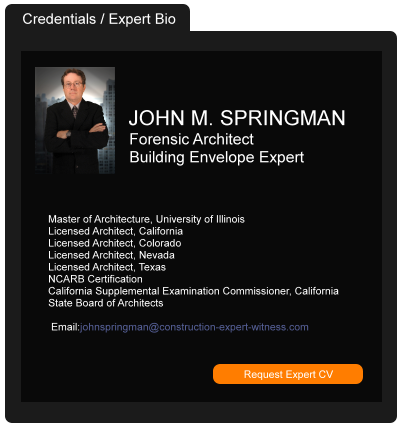Sixth Circuit Finds No Coverage for Property Damage Caused by Faulty Workmanship
October 21, 2015 —
Tred R. Eyerly – Insurance Law HawaiiThe Sixth Circuit affirmed the lower court's order granting summary judgment to the insurer who denied a defense for a construction defect claim. Steel Supply & Eng'g Co. v. Illinois Nat'. Ins. Co., 2015 U.S. App. LEXIS 14363 (6th Cir. Aug. 13, 2015).
Steel Supply contracted with the Carmel Redevelopment Corporation to fabricate and erect steel for a construction project in Carmel, Indiana. After the steel was erected, an iron worker at the site discovered defects in the steel. Subsequent investigations revealed additional defects.
Carmel filed suit against Steel Supply for breach of contract. The complaint alleged that a critical connection that Steel Supply designed was inadequate to handle the forces coming onto it. Carmel claimed that the immediate need to remediate the steel damaged Carmel directly, and that other contractors sought damages from Carmel for harm caused by the delays.
Read the court decisionRead the full story...Reprinted courtesy of
Tred R. Eyerly, Insurance Law HawaiiMr. Eyerly may be contacted at
te@hawaiilawyer.com
Hurricane Harvey Victims Face New Hurdles In Pursuing Coverage
September 07, 2017 —
Tred R. Eyerly - Insurance Law HawaiiJust as Hurricane Harvey departs the state, a new law in Texas, effective September 1, 2017, is going to make it more difficult for home and business owners to pursue claims against their insurance companies.
Prior Texas law imposed liability on an insurer who violated the Insurance Code for the amount of the claim, interest on the amount of the claim at an annual interest rate of 18 percent, and reasonable attorney fees. H.B. 1774 was recently enacted to address legal actions for claims arising from damage to or loss of property due to hailstorms, lightening, wind, hurricane, rainstorm and other natural events.
The bill creates additional procedural hurdles before a policy holder can file a lawsuit against the insurer. A written notice must be provided to the insurer at least 61 days before filing a lawsuit. The notice must include a statement of the acts giving rise to the claim, the specific amount alleged to be owed, and amount of reasonable and necessary attorney's fees already incurred by the policy holder. Once notice is received, the statute allows the insurers to send a written request to inspect, photograph, or evaluate the property.
Read the court decisionRead the full story...Reprinted courtesy of
Tred R. Eyerly - Insurance Law HawaiiMr. Eyerly may be contacted at
te@hawaiilawyer.com
The Colorado Supreme Court affirms Woodbridge II’s “Adverse Use” Distinction
December 20, 2021 —
Luke Mecklenburg - Snell & Wilmer Real Estate Litigation BlogLast year, I posted regarding the Colorado Court of Appeals’ decision in Woodbridge II, which concluded that the “adverse use” element for prescriptive easement claims only requires the claimant to “show a nonpermissive or otherwise unauthorized use of property that interfered with the owner’s property interests.” Viento Blanco, LLC, 2020 COA 34 (Woodbridge II), ¶ 2. Thus, Woodbridge II concluded, the claimants acknowledgement or recognition of an owner’s title alone is insufficient to defeat “adverse use” in the prescriptive easement context. Id. That decision was up for review by the Colorado Supreme Court at the time of my prior post. It has now been affirmed, thereby settling an arguable appellate decision split created by Woodbridge II. See Lo Viento Blanco, LLC v. Woodbridge Condo. Ass’n, Inc., 2021 CO 56 (“Woodbridge”).
“Like the division below, and for much the same reasons,” the Colorado Supreme Court affirmed in Woodbridge “that under Colorado law, a claimant’s acknowledgement or recognition of the owner’s title during the claimant’s asserted prescriptive period does not interrupt the prescriptive use or undermine the claimant’s adverse use.” Woodbridge, ¶ 2. Writing for a unanimous court, Justice Gabriel’s opinion agreed with the Court of Appeals’ reasoning “that although Woodbridge recognized that it did not hold title, no evidence indicated that it had acted in subordination to the owner’s title.” Id. ¶ at 13. The Court further agreed with Woodbridge II’srejection of Lo Viento’s “permissive use” argument because “the permission offered … was conditional and Woodbridge never agreed to any of the conditions set forth therein.” Id. On that basis, Woodbridge confirmed that “a claimant seeking to establish a prescriptive easement need not show that it asserted exclusive ownership of the property during the prescriptive period,” but only “that its use was without permission or otherwise unauthorized and that it interfered with the owner’s property interests.” Id. at ¶ 23.
Read the court decisionRead the full story...Reprinted courtesy of
Luke Mecklenburg, Snell & WilmerMr. Mecklenburg may be contacted at
lmecklenburg@swlaw.com
Appraisers’ Failure to Perform Assessment of Property’s Existence or Damage is Reversible Error
July 30, 2015 —
Christopher Kendrick and Valerie A. Moore – Haight Brown & Bonesteel LLPIn Lee v. California Capital Insurance Co. (No. A136280; filed 6/18/15), a California Court of Appeal held that it was error for an appraisal panel to assign loss values to items simply because they were listed in the insured’s scope of loss, and regardless of whether inspection revealed they were undamaged or never existed.
California Capital insured a twelve unit apartment building owned by Ms. Lee in Oakland, California. When a fire damaged one unit, the insurer prepared an estimate of $69,255 and paid an undisputed amount of $46,755, which was the amount of the estimate less depreciation and the deductible.
But Ms. Lee claimed that six of the units had been damaged, and she retained a public adjuster who submitted a claim exceeding $800,000. This included cleaning, asbestos abatement, reconstruction of the affected apartments, and loss of rent. She claimed burn damage to one unit and smoke damage requiring complete replacement of all the interior rooms of five apartments, along with removal of a portion of the stucco exterior and iron balcony railings and repainting of the entire building.
Reprinted courtesy of
Christopher Kendrick, Haight Brown & Bonesteel LLP and
Valerie A. Moore, Haight Brown & Bonesteel LLP
Mr. Kendrick may be contacted at ckendrick@hbblaw.com; Ms. Moore may be contacted at vmoore@hbblaw.com
Read the court decisionRead the full story...Reprinted courtesy of
KB Homes Sues Condo Buyers over Alleged Cybersquatting and Hacking
October 22, 2013 —
CDJ STAFFWillowbrook, a condominium complex in Lakewood Ranch, Florida has had problems with water intrusion. Now the builder is having problems with some of the residents. National home builder KB Homes is alleging that a pair of Willowbrook home owners who created a web site about their problems have violated federal cybersquatting laws, as the web site names they have registered are close to that KB Homes. The suit alleges that Andrew Smith and Daniel Koehler hope to either get KB Homes to purchase the web site or to buy back their homes.
The lawsuit also alleges that three other individuals, William Crismon, Patrick McGettigan, and Armando Oyola-Delgado, conspired to intercept e-mails between KB Home and Dueall Construction. KB Homes claims that the three gained access to a WiFi hotspot used by Dueall.
Read the court decisionRead the full story...Reprinted courtesy of
Traub Lieberman Attorneys Recognized as 2020 Super Lawyers and Rising Stars
November 16, 2020 —
Traub LiebermanTraub Lieberman is pleased to announce that Super Lawyers has named nineteen of our attorneys as 2020 Super Lawyers and Rising Stars.
Super Lawyers selects attorneys using a multiphase selection process in which nominations and evaluations are combined with independent research. Each candidate is evaluated on 12 indicators of peer recognition and professional achievement. Selections are made on an annual, state-by-state basis. The objective is to create a credible, comprehensive and diverse listing of outstanding attorneys that can be used as a resource for attorneys and consumers searching for legal counsel.
The Super Lawyers designation recognizes the top 5% of attorneys in the U.S. and the Rising Stars designation recognizes the top 2.5% of attorneys in the U.S. under the age of forty, as chosen by their peers and through independent research within their practice area.
Read the court decisionRead the full story...Reprinted courtesy of
Traub Lieberman
Stay of Coverage Case Appropriate While Court Determines Arbitrability of Dispute
April 22, 2024 —
Tred R. Eyerly - Insurance Law HawaiiThe Fifth Circuit vacated a discovery order issued by the district court and remanded the case for issuance of a stay while the arbitrability of the coverage dispute was reviewed. Cameron Parish Recreation #6 v. Indian Harbor Ins. Co., et al., 2024 U.S. App. LEXIS 3804 (5th Cir. Feb. 19, 2024).
The plaintiffs purchased surplus lines polices from various insurance companies to provide coverage for commercial properties. The policies included an arbitration provision for resolving any disputes. After plaintiffs were denied coverage for damage to their properties from Hurricane Laura, they sued the insurers. The insurers filed motions to compel arbitration and to stay the case. The district court refused the stay and ordered limited discovery into arbitrability. The insurers appealed.
Read the court decisionRead the full story...Reprinted courtesy of
Tred R. Eyerly, Damon Key Leong Kupchak HastertMr. Eyerly may be contacted at
te@hawaiilawyer.com
Alabama Still “An Outlier” on Construction Defects
October 14, 2013 —
CDJ STAFFWhile many state Supreme Courts have determined that faulty construction work can be an occurrence under a standard commercial liability policy, the Alabama Supreme Court has taken the contrary view. Writing on the Kilpatrick Townsend blog, Carl A. Salisbury and Edmund M. Kneisel point out that the decision makes Alabama “an outlier,” and they ask, “how much longer will the outliers hold out?”
They note that in the underlying construction defect case, “the arbitrator awarded $3 million in compensatory damages to the homeowners because of improperly installed flashing; improperly installed brick; the lack of weep holes in the brick; improperly installed doors and windows; improper construction of the upper porches; faulty construction of the roof; improper installation of a bathtub.” They summarize: “the house must have leaked like a colander.”
When the insurer denied coverage, the contractor sued. The insurer argued that “the CGL policy form does not cover construction-related acts or omissions because such acts are not an insured ‘occurrence.’” Mr. Salisbury and Mr. Kneisel point out that “the Alabama Supreme Court agreed.”
The problem they see is that “if there is no insurance for any intentional act, then insurance is simply a rip-off — it covers nothing.” They quote Justice Benjamin Cardozo to this effect: “To restrict insurance to cases where liability is incurred without fault of the insured would reduce indemnity to a shadow.” Their argument is that the Alabama decision was not the “correct position,” as exemplified by recent decisions from West Virginia, North Dakota, Connecticut and Georgia. The case “was a prime opportunity for the Alabama Supreme Court to leave the ranks of the outliers and join the majority view.”
Read the court decisionRead the full story...Reprinted courtesy of


































































